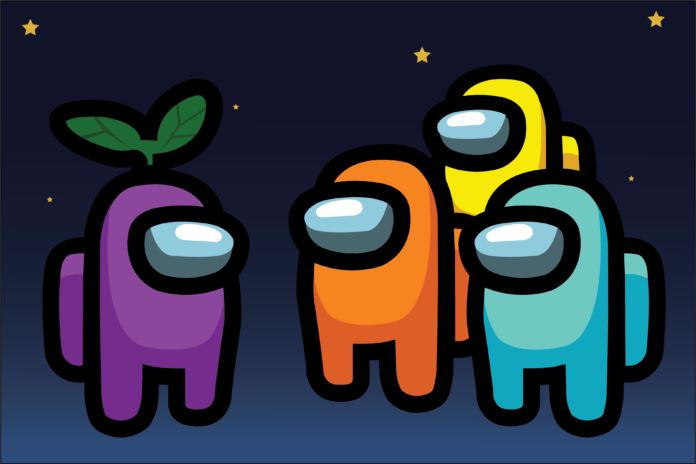What do lies, murder, betrayal and famous politicians all have in common—Among Us
Lies, deceit, betrayal and the age-old question of “how to get away with murder” are all explored in the widely popular and addictive online game “Among Us.”
If you ever wanted to experience a murder-mystery in a fossil-fuel-powered alien spaceship or take the feeling of “imposter syndrome” to the next level, try playing one of 2020’s most talked-about games.
In this multiplayer mobile and PC game, a group of ten players called “crewmates” are transported onto a spaceship where they have to complete tasks, survive murder attempts by an “imposter” who is another player posing as crewmate and identify the killer among them.
The goal of crewmates is to complete all the tasks before the imposter murders a majority of them. The goal of the imposter is to kill as many of the crewmates as possible, all the while trying to prevent their identity from being uncovered. Crewmates report the deaths of murdered players and hold court to determine the identity of the killer and cast a plurality vote, which determines who gets ejected from the ship.
Players can choose to host their own local games or join online matches in which they are assigned an avatar in one of the 12 colors that can be customized with an assortment of 40-some hats.
“Among Us” was initially released on June 15, 2018 by the indie app developer InnerSloth, but didn’t reach its shocking fame and popularity until 2020—a consequence of COVID-19. Digital platforms and cellphone apps have seen a huge spike in their activity as people are spending more time inside their homes on the internet and less time out and about.
It is the 7th-most played game in July, August and September of 2020, and has been downloaded over 217 million times.
When asked about the most appealing part of the game, Melody Shiau, a second-year biological sciences major said she liked its convenience.
“I like the game ‘Among Us!’” Shiau said. “It’s a super convenient game especially during this pandemic because all you need is a code to play with all your friends. I probably play it once or twice a month.”
Malika Haji, a second-year managerial economics major, plays it with friends, family and strangers.
“I feel like ‘Among Us’ became popular overnight… but I’m glad it did,” Haji said. “I love playing the game with my friends and with randoms online. Even my family members love it so much that we have a separate group chat dedicated to playing ‘Among Us’ together. I love it!”
“Among Us” has become ingrained into Generation Z’s culture in such a way that phrases such as “yellow is sus,” “purple vented” or “skip vote” are part of our daily vernacular.
It is more than just a way for high school and college students to interact in a socially distant world. It has become a platform that can be used to capture the attention of the younger generation.
This was the tactic used by Alexandria Ocasio-Cortez (D-NY), the U.S. Representative for New York’s 14th congressional district. AOC, as she is referred to by her supporters, tweeted on Oct. 19, “Anyone want to play Among Us with me on Twitch to get out the vote?”
And just like that, on Oct. 21, AOC hosted a Twitch stream which included Congresswoman Ilhan Omar of Minnesota’s 5th congressional district and famous streamers such as Pokimane, Disguised Toast and HasanAbi, a political commentator and one of the event’s organizers.
In the 3 ½ hour Twitch stream, the Congresswomen attempted a hilarious and entertaining go at being both a crewmate and imposter. But more importantly, during their many “Among Us” matches, the Congresswomen attempted to energize the 444,000 viewers watching live to make a solid plan to vote.
Ocasio-Cortez directed viewers to websites such as IWillVote.com, which aims to help voters create voting plans. Not only that, but Ocasio-Cortez’s “Among Us” stream was the third most watched livestream in all of Twitch’s history and has garnered an overall 5.4 million views.
Haji watched clips of the stream on Twitter.
“I thought it was pretty cool actually for her to stream herself playing ‘Among Us,’” Haji said. “It’s refreshing to see politicians in a more fun and light-hearted manner instead of always seeing them behind podiums and on the news.”
Tahla Bahnasy, a second-year cognitive science major and tech management minor also watched Ocasio-Cortez’s Twitch stream and commented on the tactic of politicians using popular platforms as a way to get the vote out.
“I thought it was pretty fun watching her play,” Bahnasy said. “I think it’s great that politicians are using games to appeal to younger voters because a lot of the time voters our age feel like politics is so separated from their lives that it doesn’t even matter if they participate. But playing and streaming a game like this makes them so much more personable and relatable.”
It is not certain how many people felt energized to vote following Ocasio-Cortez’s “Among Us” stream, but given that the average person who uses Twitch is 21, the Congresswoman knew exactly what she was doing—succinctly capturing a large voting-eligible audience and galvanizing them to vote on their turf.
At the end of the day, “Among Us” is synonymous to a group project—a few people do all the work and someone always sabotages the game plan. But for politicians or activists, it can be an invaluable platform for access to a treasure-trove of eligible voters who can be invigorated to vote.
Written by: Muhammad Tariq — arts@theaggie.org




